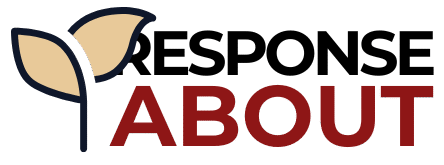In the dynamic world of higher education, students often find themselves on a rollercoaster of experiences. Whether you’re a concerned friend, family member, or educator, the question “How are your studies going?” can open up a wealth of conversations about academic progress, personal growth, and the challenges of student life.
According to the National Center for Education Statistics, over 19 million students were enrolled in colleges and universities in the United States in 2021. Each of these individuals embarks on a unique educational journey, facing triumphs and obstacles along the way. The American College Health Association reports that stress is a significant concern for many students, with academic performance being a primary source of anxiety. A well-crafted reply can provide valuable insights into one’s academic journey, opening doors to meaningful discussions and opportunities for growth.
In this comprehensive guide, we’ll explore 50 diverse responses to “How’s your studies going?” These responses cater to various academic situations, emotional states, and personal experiences. By offering genuine, reflective answers, students can effectively communicate their progress, challenges, and aspirations, fostering a supportive environment that empowers academic success.
Positive and Enthusiastic Responses
- “My studies are thriving! I’m deeply engaged in my coursework and discovering new passions every day.”
- “It’s going exceptionally well. I’ve found a great balance between academics and personal life, which has boosted my overall performance.”
- “I’m thoroughly enjoying the intellectual challenges. Each class feels like an exciting adventure in learning.”
- “The academic experience has been transformative. I’m not just gaining knowledge; I’m evolving as a person.”
- “I’m making significant strides in my research. The discoveries I’m making are both exciting and promising.”
Balanced and Realistic Responses
- “It’s a mix of ups and downs, but overall, I’m progressing steadily. I’m learning to navigate the challenges effectively.”
- “Some subjects are more demanding than others, but I’m managing to keep up. It’s all part of the learning process.”
- “I’m facing my share of obstacles, but each one is teaching me valuable lessons about perseverance and problem-solving.”
- “It’s been a journey of self-discovery. I’m uncovering my strengths and working on my weaknesses.”
- “I’m learning to embrace the ebbs and flows of academic life. Every day brings new opportunities for growth.”
Responses Focused on Personal Growth
- “My studies are pushing me out of my comfort zone, which is exactly what I needed for personal development.”
- “I’m not just accumulating knowledge; I’m developing critical thinking skills that will serve me well beyond graduation.”
- “The academic rigor is challenging me to become more disciplined and focused. It’s a valuable life lesson.”
- “I’m learning as much about myself as I am about my subjects. This self-awareness is invaluable.”
- “My studies are teaching me the importance of resilience and adaptability in the face of challenges.”
Responses Highlighting Time Management
- “It’s a constant juggling act between assignments, exams, and extracurriculars, but I’m honing my time management skills.”
- “I’ve developed a study routine that allows me to balance academic demands with personal time effectively.”
- “I’m learning to prioritize tasks and manage my energy, which has improved my overall academic performance.”
- “It’s busy, but I’m getting better at allocating my time efficiently. Every week, I feel more in control.”
- “I’ve discovered the power of effective scheduling. It’s made a world of difference in managing my workload.”
Responses Addressing Challenges
- “I’m facing some hurdles in certain subjects, but I’m actively seeking help and working on strategies to overcome them.”
- “It’s been more challenging than I anticipated, but I’m determined to persevere and find solutions.”
- “I’ve hit a few roadblocks, but each one is teaching me valuable lessons about problem-solving and resilience.”
- “Some concepts are proving difficult to grasp, but I’m not giving up. I’m exploring different learning techniques.”
- “The workload can be overwhelming at times, but I’m learning to break it down into manageable chunks.”
Responses Emphasizing Collaboration and Support
- “I’m benefiting greatly from study groups and peer collaborations. It’s enhancing my understanding of complex topics.”
- “The support from my professors and academic advisors has been instrumental in my progress.”
- “I’m actively engaging in class discussions and office hours, which has deepened my grasp of the material.”
- “I’ve found a great study buddy, and our collaborative efforts are paying off in improved grades and understanding.”
- “The academic community here is incredibly supportive. It’s made a significant difference in my learning experience.”
Responses Focused on Future Goals
- “My studies are aligning well with my career aspirations. I’m gaining valuable skills for my future profession.”
- “I’m excited about how my current coursework is preparing me for advanced studies in my field.”
- “Each class is bringing me closer to my academic and professional goals. It’s motivating to see the progress.”
- “I’m strategically choosing courses that will give me a competitive edge in the job market after graduation.”
- “My studies are opening up new possibilities I hadn’t considered before. It’s exciting to see my future options expanding.”
Responses Addressing Work-Life Balance
- “I’m learning to balance academic demands with self-care. It’s crucial for maintaining long-term success.”
- “I’ve found ways to integrate my personal interests into my studies, which has made the learning process more enjoyable.”
- “I’m practicing mindfulness to manage academic stress, and it’s improving both my studies and overall well-being.”
- “I’ve set boundaries to ensure I have time for both studies and personal life. It’s made me more productive overall.”
- “I’m exploring extracurricular activities that complement my studies, creating a well-rounded college experience.”
Responses Highlighting Personal Motivation
- “I’m driven by curiosity and the desire to excel. Each day brings new opportunities to learn and grow.”
- “I’ve set clear academic goals for myself, and working towards them keeps me motivated and focused.”
- “I find the subject matter fascinating, which makes the challenging aspects of studying more manageable.”
- “I’m inspired by the potential impact of my field of study. It fuels my dedication to learning.”
- “I’ve developed a growth mindset, which helps me view challenges as opportunities rather than obstacles.”
Responses Addressing Stress and Mental Health
- “I’m learning to manage academic stress through effective coping strategies and seeking support when needed.”
- “I prioritize my mental health alongside my studies. It’s essential for sustainable academic success.”
- “I’ve found a balance between pushing myself academically and knowing when to take breaks for self-care.”
- “I’m practicing resilience in the face of academic pressure. Each challenge is an opportunity to grow stronger.”
- “I’m focusing on progress rather than perfection, which has significantly reduced my stress levels.”
Understanding the Student Experience
The American College Health Association reports that stress is one of the top factors affecting academic performance. In fact, their 2022 survey found that over 30% of students reported stress as having a negative impact on their academic performance.
When asking about a student’s studies, it’s important to listen not just to the words, but to the underlying emotions and experiences they convey. A seemingly positive response might mask underlying stress, while a negative response could be an opportunity to offer support and resources.
How to Support Students Through Their Academic Journey?
For those interacting with students, whether as friends, family, or educators, here are some tips for providing support:
- Listen actively: Sometimes, students just need someone to hear them out without judgment.
- Offer encouragement: Acknowledge their efforts and progress, no matter how small.
- Provide resources: If a student is struggling, guide them toward campus resources like tutoring centers, counseling services, or academic advisors.
- Promote balance: Encourage a healthy balance between academics, social life, and self-care.
- Normalize challenges: Remind students that it’s okay to struggle and that seeking help is a sign of strength, not weakness.
According to the Centers for Disease Control and Prevention, mental health issues among college students are on the rise.
Conclusion
The question “How are your studies going?” can open up a wealth of conversations about academic life, personal growth, and the challenges students face. By understanding the variety of responses and their implications, we can better support students through their academic journey. Remember, every student’s experience is unique, and a thoughtful, supportive approach can make a significant difference in their academic success and personal well-being.
Whether you’re a student navigating the complexities of higher education or someone supporting a student on their academic journey, remember that challenges are a normal part of the learning process. With the right support, resources, and mindset, these challenges can become opportunities for growth and achievement.


